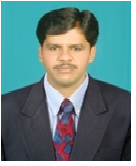The department of Economics was started in the year 1972.
Aims and Objectives:
• To impart higher education of Economics to the rural students of our drought prone area to abolish poverty and misery.
• To prepare students to be able to evaluate Govt's economic policies.
• To generate employment opportunities
• To motivate students to make use of modern technology to solve food and poverty problems.
Stratergies:
• Arranging guest Lectures/ Seminars / Group discussions
• Exchanging of mutually useful materials from near by colleges
• Providing question bank
• Developing interest in research at higher education level
• Providing objective questions in tests
• Preparing them for Indian Economic service examination
The Programme outcomes (POs) are expected to be as under:
• Students will be able to understand economic vocabulary, methodologies, tools and analysis procedures.
• Students will be familiar with the knowledge and application of micro economics for the formulation of policies and planning.
• Students will learn to apply economic theories and concepts to contemporary social issues, as well as analysis of policies.
• Students will be able to understand the impact of government policies and will be able to assess the consequences of the policies on the parties involved.
• As the programme along with economics contains like statistics, mathematics, it enhances them to compute and assess the real situation of the economy including the size and changes of population, income pattern, and rate of development with pattern of savings and investments and social security measures adopted in the country.
• Understand the basics of quantitative techniques their applications
• Critically evaluate the ongoing economic developments in India and abroad
• Understand research methods in economics
• Student develops an awareness of career choices and the option for higher studies.
Investigate the complexity of the economic problem and apply economic decision-making tools and processes to deal with the problem
Demonstrate an understanding of the role of economic systems in relation to economic problems
Distinguish between the approaches adopted by a range of economic systems to allocate resources.
Describe the meaning, measurement and trends of economic growth in the country like India
Evaluate the costs and benefits of pursuing economic growth in the country.
Analyse and evaluate the effectiveness of the market system in determining prices
Describe and use the main tools of micro-economic management
Describe and analyse a chosen local industry in terms of its contribution to the local economy.
Explain the nature and operation of government macro-economic policy and evaluate its effectiveness in achieving the macro-economic objectives of the government
Describe the weaknesses in the market economy and illustrate the reasons for government intervention and regulation in the market
Identify the range of macro-economic issues currently impacting on the economy of India and link appropriate macro-economic management strategies to those issues.
Use trends in balance of payments, terms of trade and exchange rates to identify key issues facing the domestic and external economy
Discuss the likely effects of these issues on the domestic economy and propose appropriate micro-economic and macro-economic strategies to manage these issues
Describe and illustrate the impacts of globalisation on the economy.
DSC-1: Basic Economics – I
1. Identify the facets of an economic problem.
2. Learn basic economic concepts and terms.
3. Explain the operation of a market system;
4. Analyses the production and cost relationships of a business firm;
5. Evaluate the pricing decisions under different market structures; and
6. Use basic cost-benefit calculations as a means of decision making (i.e., thinking like an economist)
DSC-2: Contemporary Indian Economy (Course Outcomes):
1. Understand the current problems of Indian Economy
2. Identify the factors contributing to the recent growth of the Indian economy
3. Evaluate impact of LPG policies on economic growth in India
4. Analyze the sector specific policies adopted for achieving the inspirational goals
5. Review various economic policies adopted
OE- 1.1: Kautilya’s Arthashastra (OEC)
1. This course will enlighten the students about the ancient fundamentals about political and economic constituents, which will frame out a basic land of understanding the modern trends. This will help them to understand the upcoming needs in the area of policy making for states at national and international level.
2. This treatise deals with the science of Governance, so it projects out all the dimensions needed to be understood by students about the present socio-economic and political rules and regulations of the state.
OE-1.2: Pre-Reforms Indian Economy (Course Outcomes):
1. Trace the evolution of Indian Economy
2. Identify the structural features and constraints of the Indian economy
3. Evaluate planning models and strategy adopted in India
4. Analyze the sector specific problems and contributions towards overall economic growth
5. Review various economic policies adopted
OE-1. 3: Development Studies (OEC)
1. Graduates will be able to excel in higher studies and/or to succeed in profession.
2. Graduates will get a solid foundation of fundamentals required to solve socioeconomic problems and also to pursue higher studies.
3. Graduates will demonstrate knowledge to appreciate of the dimensions of contemporary development issues, to generate sensitivity to problems concerning ethics and human values to develop orientation towards effective communication and critical analysis, and to appreciate the interrelationships among disciplines as they relate to everyday realities.
4. Graduates will cultivate professional and ethical attitude, effective Communication skills, teamwork skills, multidisciplinary approach, and to facilitate an advanced understanding and appreciation of the principles, methodologies, value systems, and thought processes employed in human inquiries.
DSC-3: Basic Economics II (Course Outcomes): (2nd Sem)
1. Understand the operation of the overall economic system;
2. Calculate national income and related aggregates
3. Explain the relationship between macroeconomic aggregates;
4. Analyses the nature of business cycles and policies towards controlling them;
5. Evaluate the macroeconomic policies for solving major problems like poverty and unemployment
DSC-4: Karnataka Economy B.A II Sem
1. Understand the nature of economic growth and problems of Karnataka state.
2. Explain the process of structural growth in Karnataka economy;
3. Evaluate the policies and programmes undertaken by the Govt. of Karnataka for bringing about socio-economic development
OE-2.2 Sustainable Development B.A II Sem
1. Understand the basic concept of Sustainable Development (SD), the environmental, social and economic dimensions.
2. Know the history of the SD idea.
3. Be able to discuss the conflicts which are involved in the SD concept on the national as well as on the global scale.
4. Be able to discuss the disadvantages of instruments for SD;
5. Evaluate the sustainable development goals and their attainments
OE-2.3 Economics of Business Environment B.A II Sem
1. Explain the elements of Business environment.
2. Identify the environmental constraints in the growth of a business firm.
3. Analyze the ways to utilize the current environmental conditions to achieve higher business growth.
DSC-5: Micro Economics B. A. III Sem (NEP)
1. Understand introductory economic concepts.
2. Recognize basic supply and demand analysis.
3. Recognize the structure and the role of costs in the economy.
4. Describe, using graphs, the various market models: perfect competition, monopoly, monopolistic competition, and oligopoly.
5. Explain how equilibrium is achieved in the various market models.
6. Identify problem areas in the economy, and possible solutions, using the analytical tools developed in the course.
DSC-6: Mathematics for Economics B. A. III Sem (NEP)
1. Perform basic operations in Sets and functions and Matrix algebra.
2. Calculate limits, derivatives of Economic functions and identify the nature of relationship.
3. Calculate maxima and minima of function.
OE-3.1 Rural Economics B. A. III Sem (NEP)
1. To understand the basics of rural development,
2. To study the characteristics, problems, and programmes of rural redevelopment
3. To study the trends and patterns of economic activities in rural areas
4. To study the role of infrastructural facilities and governance in rural development
5. To enable the students to know about significance of rural enterprises and agricultural allied activities.
OE-3.2 Economics of Insurance B. A. III Sem (NEP)
1. Gain knowledge relating to the importance of the insurance in the life of human beings.
OE-3.3 Economics of Human Development B. A. III Sem (NEP)
1. Differentiate between Human Resource Development (HRD), Human Development (HD) and HRM
2. Understand the concepts of Human security, describe dimensions of human development, and appreciate various practices and policies of human development, HDI and India.
DSC-7: Macroeconomics B. A. IV Sem (NEP)
1. Understand the Theories of National Income Accounting
2. Explain the process of Consumption and Investment Functions
3. Evaluate the Concept of Multiplier and Inflation
DSC-8: Statistics for Economics B. A. IV Sem (NEP)
1. Understand the nature of Data and their presentation
2. Calculate Descriptive statistics like measures of central tendency and dispersion
3. Apply statistical techniques like correlation and regression in Economic analysis
CBES Syllabus for Economics 2020-21
B.A.I Sem Micro Economics:
1. To familiarize the students with economic behavior of consumers and producers and production.
2. To understand cost, revenue functions and the determination of price and output in different markets.
B.A.II Sem Macro Economics:
1. Students should be able to understand the behavior of Macro Economics variables.
2. To provide knowledge of national income accounts.
3. To understand classical economics and the Keynesian economics.
4. To understand the business cycles and inflation.
B.A.III Sem Public Economics:
1. Students should be able to understand the concepts of public economics.
2. To understand the basis for public expenditure, revenue and debt.
3. To familiarize the students with different concept of budgetary deficits, budget and fiscal policy.
B.A IV Sem: International Economics:
1. To clarify the concepts of internal and international trade.
2. To understand foreign exchange and exchange control.
3. To know the working of international economic organizations.
B.A V Sem: Indian Economy
1. To provide the knowledge of Indian Economy.
2. To study the applied aspects of economics
B.A V Sem: Monetary Economics
1. To provide knowledge of money, value of money and supply of money.
2. To provide tools for construction of index.
3. To clarify the concepts of inflation, deflation and stagflation.
B.A VI Sem: Development Economics
1. To provide the students with the essential tools and concepts of development economics
2. Able to understand General theories of economic growth and development, problems of economic development.
3. To prepare them to understand what helps development to succeed.
B.A VI Sem: Industrial Economics
1. Able to understand the various problems confronting the entrepreneurs in the process of industrialization
2. Can be study the significance of industrialization in the dynamic competitive economic system.
3. To examine the development and expansion of major and small-scale industries.
| Sl.No |
Profile Photo |
Name |
Qualification |
Specialization |
Designation |
View Profile |
| 1 |
 |
Dr. Prakash Rathod |
M.A.,Ph.D |
Economics |
Assistant Professor & HOD |
View |
| 2 |
 |
Shri. Basavaraj Mahajanashetti |
M.A |
Economics |
Assistant Professor |
View |



